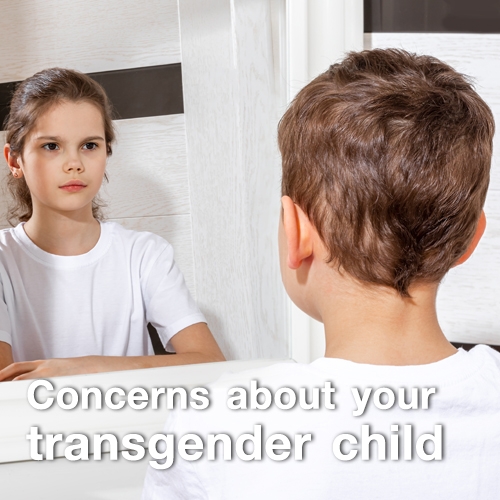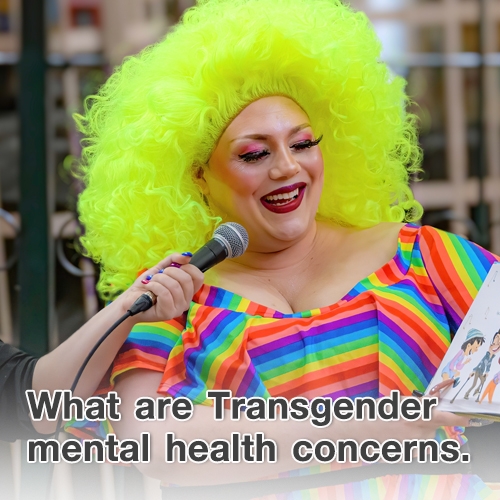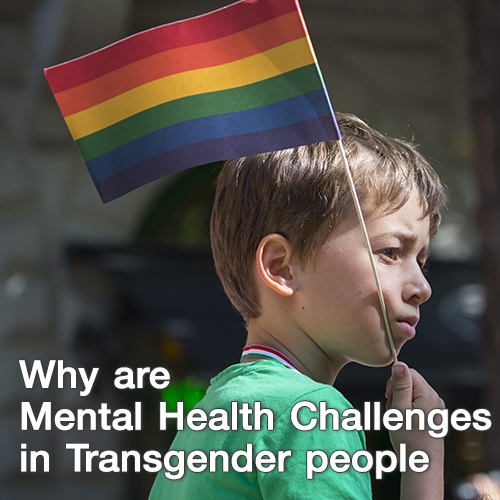Mental Healthcare for Transgender at Kamol Cosmetic Hospital
Kamol Hospital offers mental health screening and support for transgender and gender-nonconforming individuals. Our team of specialists, including psychiatrists, psychologists, and nurses, helps individuals navigate their gender identity and achieve long-term well-being.
Our Approach to Mental Health Assessment
- Clinical Interview: We gather information about gender identity, experiences of dysphoria, mental health history, and support systems.
- Diagnostic Criteria: We use established guidelines to assess if the individual meets the criteria for gender dysphoria.
- Exploration of Gender Identity: We discuss feelings, thoughts, and gender-related behaviors.
- Assessment of Mental Health: We evaluate coexisting mental health conditions like depression or anxiety.
- Readiness for Interventions: We assess readiness for gender-affirming treatments and discuss risks and benefits.
- Collaboration with Specialists: We work with other healthcare providers for comprehensive care.
Kamol Cosmetic Hospital's Mental Health Services Include
- Comprehensive Evaluation: Thorough assessments to understand needs and goals.
- Individualized Treatment Plans: Tailored therapy, medication, and interventions.
- Specialized Expertise: Specialists with expertise in gender dysphoria and LGBTQ+ mental health issues.
- Therapy and Counseling: Support to explore gender identity, address dysphoria, and navigate gender transition.
- Medication Management: Careful monitoring and selection of medications.
- Coordination of Care: Collaboration with other healthcare providers for integrated care.
- Culturally Competent Care: Respectful care for all gender identities and sexual orientations.
Our goal is to promote holistic well-being and quality of life for individuals seeking support for gender dysphoria, gender identity-related issues, and other mental health concerns.
Getting to Know : Mental Health for Transgender
What are our concerns if we have transgender children?
Supporting a transgender child involves understanding, acceptance, and providing them with love and support as they explore their gender identity.
What are transgender mental health concerns?
Transgender individuals may experience a range of mental health concerns, including gender dysphoria, depression, anxiety disorders, Post-Traumatic Stress Disorder (PTSD) and etc
Why are mental health challenges in transgender people?
Transgender individuals may experience mental health challenges for various reasons, including Gender Dysphoria, Stigma, and Discrimination, Social Isolation, Access Barriers to Healthcare
What are transgender mental health concerns?
Transgender individuals may experience a range of mental health concerns, including but not limited to
-
Gender Dysphoria
Gender dysphoria is the distress or discomfort that arises when an individual's gender identity does not align with the sex they were assigned at birth. It can manifest as dissatisfaction with one's body, social discomfort, or distress related to gender roles and expectations.
-
Depression
Transgender individuals are at higher risk of experiencing depression compared to the general population. Factors such as stigma, discrimination, social rejection, and internalized transphobia can contribute to depressive symptoms.
-
Anxiety Disorder
Anxiety disorders, including generalized anxiety disorder, social anxiety disorder, and panic disorder, may be more prevalent among transgender individuals due to the stressors associated with gender transition, discrimination, and social isolation.
-
Post-Traumatic Stress Disorder (PTSD)
Transgender individuals are at increased risk of experiencing traumatic events, such as violence, harassment, or rejection, which can lead to symptoms of PTSD. These traumatic experiences may stem from discrimination, hate crimes, or past experiences of gender-based violence.
-
Suicidal Ideation and Behavior
Transgender individuals are at significantly higher risk of suicidal ideation and suicide attempts compared to the general population. Discrimination, rejection, lack of social support, and internalized stigma can contribute to feelings of hopelessness and suicidality.
-
Substance Use Disorder
Transgender individuals may turn to substance use as a way to cope with the stressors associated with their gender identity, discrimination, and mental health challenges. Substance use disorders can exacerbate existing mental health concerns and lead to further complications.
-
Eating Disorder
Some transgender individuals may experience body image concerns and disordered eating behaviors related to gender dysphoria or societal pressures to conform to certain body ideals. Eating disorders such as anorexia nervosa or bulimia nervosa may co-occur with gender dysphoria.
-
Self-Harm
Transgender individuals may engage in self-harming behaviors as a coping mechanism for managing distress associated with gender dysphoria, discrimination, or other mental health concerns.
Kamol Cosmetic Hospital is concerned about mental health. It's important to note that not all transgender individuals will experience mental health concerns, and experiences may vary widely among individuals. However, transgender individuals face unique stressors and challenges related to their gender identity, which can impact their mental well-being. Access to culturally competent mental health care, social support, affirmation of gender identity, and efforts to reduce stigma and discrimination are essential for promoting mental health, and Kamol Hospital proudly ensures the well-being of transgender individuals.







